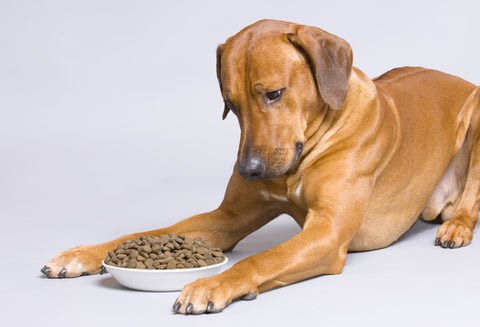WOOF! Green tea has long been celebrated for its health benefits in humans, but did you know that your furry friend can also enjoy the perks? From fresher breath to stronger bones, green tea can have a positive impact on your dog’s overall well-being. However, it’s important to approach it with caution and ensure safe consumption. In this article, we will explore the various ways green tea can improve your dog’s health and provide essential guidelines for its safe administration.
Maintain a Healthy Weight
Just like humans, some dogs are prone to weight gain, which can lead to health problems such as high blood pressure and unhealthy cholesterol levels. Green tea has been shown to help dogs maintain a healthy weight and improve their blood pressure and cholesterol levels. While it shouldn’t be used as a quick fix for weight loss, incorporating green tea into your dog’s diet can have long-term benefits.
Better Bone Health
For older dogs with weakening bones or those suffering from osteoarthritis, green tea can be particularly beneficial. Studies have shown that dogs given daily treats with green tea extract experience a significant reduction in pain and an improvement in mobility. Green tea can help your furry friend lead a more comfortable and active life.
Fresher Breath and Improved Oral Health
Periodontal disease is a common health issue in dogs, causing a myriad of problems. Green tea can be a powerful ally in maintaining your dog’s oral health. It reduces plaque buildup and fights gum disease, leading to fresher breath and healthier teeth. Regularly giving your dog green tea can make a noticeable difference in their overall oral hygiene.
Less Doggy Dandruff and Dry, Itchy Skin
If your dog suffers from dandruff or dry, itchy skin, green tea can provide relief. Its anti-inflammatory properties help soothe irritation and combat common skin conditions. Additionally, green tea is rich in vitamins E and C, which nourish dry skin and promote natural collagen production. You can incorporate green tea into your dog’s diet or use it topically in the form of shampoos or rinses.
A Healthier Coat of Hair
Just as green tea has been found to promote human hair growth, it can also benefit your dog’s coat health. Aging dogs often experience dull and matted hair, but green tea can help restore its shine and luster. Incorporating green tea topically and making it a part of their grooming routine can contribute to a healthier and more vibrant coat.
Cancer-Fighting Properties
Green tea’s high antioxidant levels make it a valuable tool in the fight against cancer. It has been found to have cancer-fighting properties, particularly against common cancers found in dogs. However, it’s essential to consult your veterinarian before supplementing your dog’s diet with green tea, especially if they already have cancer or other health conditions.
Better Behavior (Who’s a good girl!)
If your dog struggles with hyperactivity or anxiety, green tea may help calm them down. The l-theanine in green tea can boost serotonin and dopamine levels in dogs, alleviating stress and promoting better behavior. While green tea is not a cure-all for behavioral issues, it can be a natural and gentle way to support your dog’s mental well-being.
Green Tea for Dogs: Is it Safe?
In small amounts, green tea is generally safe for dogs and can provide numerous health benefits. However, it’s crucial to be aware of the caffeine content in green tea, as high concentrations can be toxic to dogs, especially when taken on an empty stomach. Matcha green tea and other green tea varieties are considered safe for dogs when given in small doses.
What is a Safe Amount of Matcha Green Tea for Dogs?
Before incorporating green tea into your dog’s diet, consult with your veterinarian to determine the appropriate dosage. As a general guideline, it is recommended to give no more than 1 gram of matcha mixed with your dog’s food or steeped in cold water. Be aware of your dog’s caffeine intake and adjust the dosage accordingly.
The Importance of Feeding Your Dog When Giving Them Green Tea
Research has shown that green tea can be detrimental to fasting dogs, while combining it with food yields positive results. Administering green tea in lower doses, combined with regular meals, ensures its safety and effectiveness. Always feed your dog before giving them green tea to avoid any potential risks.
How to Prepare Green Tea for Your Dog
To ensure safe and enjoyable consumption, it’s essential to prepare green tea properly for your dog. Here is a simple method to incorporate green tea into your dog’s diet:
- Choose a loose leaf green tea variety or matcha powder with a lower caffeine content.
- Combine the green tea with cold water or reuse used tea bags for a milder flavor.
- Let the tea steep for 15 minutes in cold water to reduce caffeine content.
- Mix the green tea into your dog’s meals or use it to make healthy dog treats.
- Adjust the dosage based on your dog’s size and needs.
Conclusion
Green tea can be a valuable addition to your dog’s diet, offering a range of health benefits from fresher breath to improved coat health. However, it’s crucial to consult your veterinarian before introducing green tea to your dog and to ensure safe and appropriate dosages. Green tea is best used as a complement to a balanced diet and regular veterinary care. Your furry friend deserves the best, and with the right approach, green tea can contribute to their overall well-being.
Frequently Asked Questions
Can I give my dog green tea every day?
While green tea can be beneficial to your dog’s health, it’s essential to consult your veterinarian before making it a daily part of their routine. Your veterinarian can provide personalized advice based on your dog’s specific needs and health conditions.
Can I use green tea topically on my dog?
Yes, green tea can be used topically to soothe and calm irritated skin. You can find dog shampoos and rinses containing green tea or create your own homemade treatments using green tea.
Are there any risks of giving green tea to my dog?
While green tea is generally safe for dogs in moderation, it’s important to be mindful of the caffeine content. High doses of caffeine can be toxic to dogs, especially when ingested on an empty stomach. Always consult your veterinarian and follow their guidance for safe and appropriate usage.
How do I know if my dog has had too much green tea?
If your dog experiences symptoms such as vomiting, increased heart rate, elevated blood pressure, or seizures after consuming green tea, it may indicate caffeine toxicity. Contact your veterinarian immediately if you suspect your dog has had an excessive amount of green tea.
Is green tea suitable for all dog breeds?
All dog breeds have unique needs, and individual dogs may have specific sensitivities or medical conditions that affect their ability to tolerate green tea. It’s crucial to consult your veterinarian and consider your dog’s specific circumstances before introducing green tea into their diet. Each dog is different, and personalized advice is essential for their well-being.
References: 1, 2, 3, 4, 5, 6, 7, 8, 9, 10, 11, 12, 13, 14, 15, 16, 17



